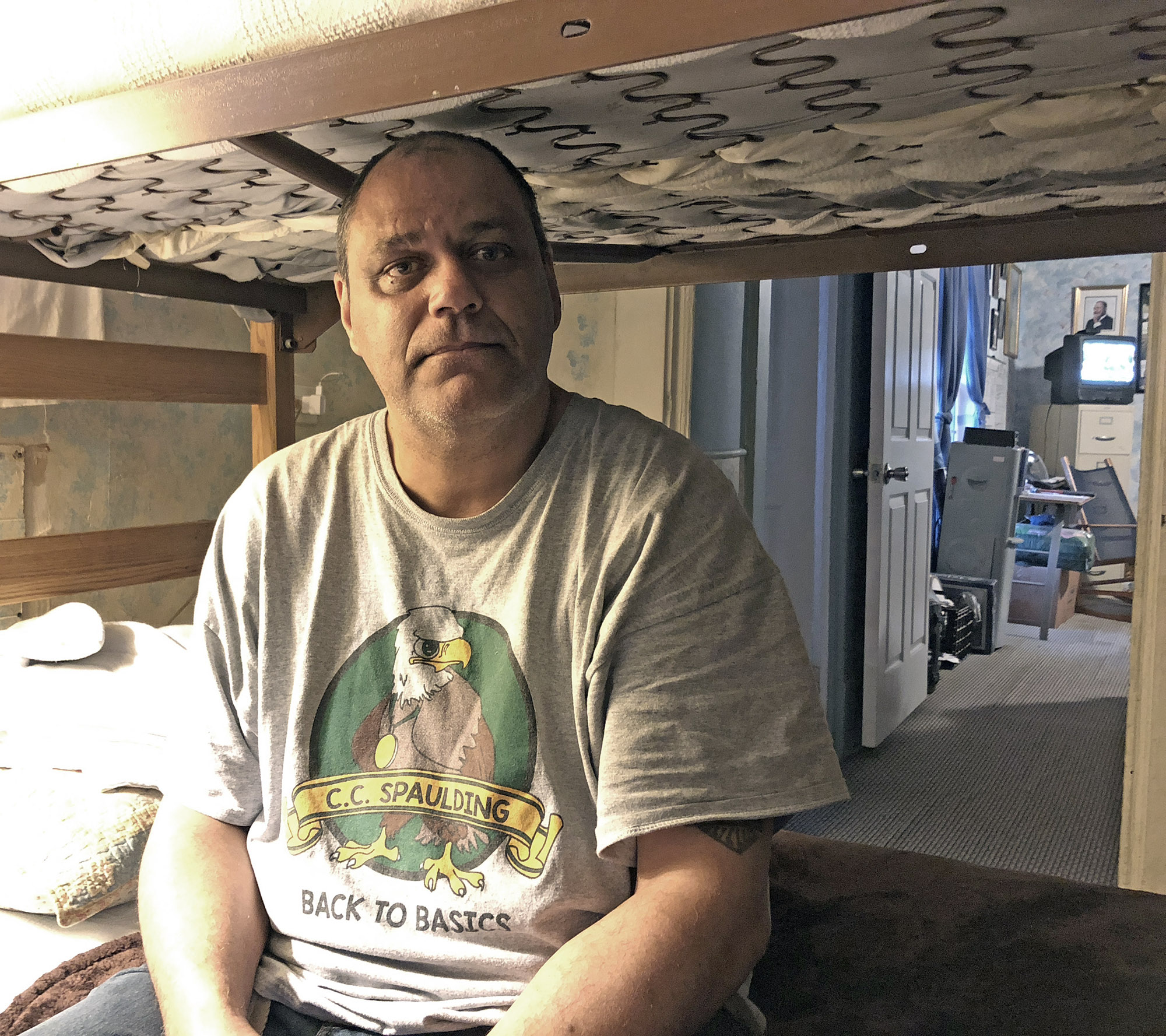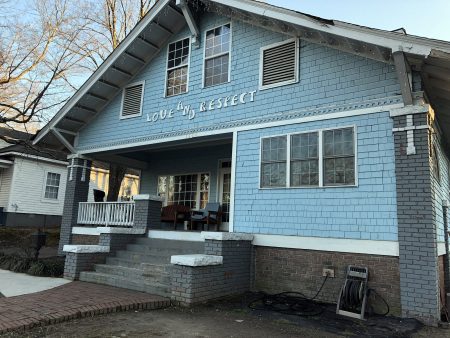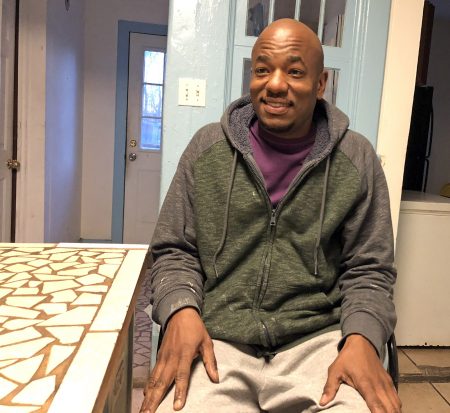
Love & Respect client Ronald Mcmillion sits on the bottom of a bunk bed in a four-person room, in the first Love & Respect recovery home. (Staff photo by Liz Chen)
Dennis Garrett is the ultimate philanthropist. After years of drug addiction, homelessness and going in and out of prison, Garrett realized he needed to change his lifestyle. He founded Love & Respect, a drug addiction recovery home, in 2002. Post-recovery, the 55-year-old now devotes his time to helping others who struggle with addiction and violence.

The Love and Respect Recovery House, located at 1604 Angier Avenue. (Staff photo by Liz Chen)
The Durham VOICE documented Garrett’s story in 2010 and 2013, but, since then, Garrett’s success has proliferated. Garrett says that Love & Respect has served over 250 addicts. Fewer than 40 of them have returned after relapsing.
Two reconstructed recovery homes on Angier Avenue house 18 recovering addicts — 12 in the original house, and six in the sex-offender compliant house.
“Most people, it’s easier to incarcerate them than to rehabilitate,” said Garrett, dressed head-to-toe in Carolina gear. “It’s easier to discard them because we’re complicated, but we’re not complicated. We just have problems.”
Love & Respect is associated with various programs to aid the recovery processes of its clients. One such program is tailored specifically to substance abuse.
“We’re aligned with a Narcotics Anonymous program, an intense recovery-based program,” said Love & Respect Assistant Director Ken Dunn, who is also a former addict. “We require our clients to attend three NA meetings per week.”

Every year on the first Saturday of June, Love & Respect Founder Dennis Garrett hosts a Take Back the Streets march to stop violence in the community. (Staff photo by Liz Chen)
Every morning, Dunn leads a meditation, and then delegates a training program that teaches job skills. Garrett and Dunn describe the daily mediation as a “spiritual gathering.”
The primary mindset that Garrett teaches is selflessness, with an emphasis on helping others.
“We are based on being selfless more than selfish,” said Garrett.
“The disease of addiction is attitude and behavior, and it’s that generally negative outlook that’s deeply rooted in fear, low self-esteem and insecurity,” said Garrett. “And we teach our guys that fear is saying we can f— everything and run. Or we can face everything and recover.’”
Kelly Mitchell, a former addict, is staying at the Love & Respect recovery house for the fifth time.
Addiction has created multiple obstacles for Mitchell, including homelessness. “[Being homeless] was miserable. It was hard,” said Mitchell.
Ronald Mcmillion, a 53-year-old Ohio native, says that Garrett practices what he preaches. “Dennis Garrett gave me a chance,” said Mcmillion. “He let me in.”

Love & Respect client Kelly Mitchell says he loves all types of music (except for country), and enjoys commercial painting. (Staff photo by Liz Chen)
After three days of living in a ‘drug house,’ Mcmillion said he realized he had to get his act together. “I called Dennis Garrett … he dropped everything and came and got me. I hadn’t eaten in three days,” said Mcmillion. “The first thing he asked me when I got in his car was: ‘Have you eaten?’ And that touched me.”
Michael Lee, a 37-year-old Love & Respect client, says that his addiction led him down a dismal path. “I became this dark, cold-hearted person. I didn’t care about nobody. I didn’t care if I lived or died, I was just out there really lost,” said Lee.
Lee’s motivation for recovery was losing his best friend’s sister to a drug overdose.
“[Her death] was really an eye-opener, and it was the last straw for me,” said Lee. “I want to live long enough to see my kids do something on this earth.”
Lee says that what makes Love & Respect unique from other rehabilitation centers, is the ability to relate to the program’s directors, Garrett and Dunn.
“With this program, it’s all about the person. You can lie to yourself, but you can’t lie to some of these guys that are older, who have been there,” said Lee. “You can’t lie to Mr. Garrett, because he’s been there. You gotta really want [to recover]. You gotta be really sick and tired of being sick and tired.
For a printer-friendly version of this story, click here.